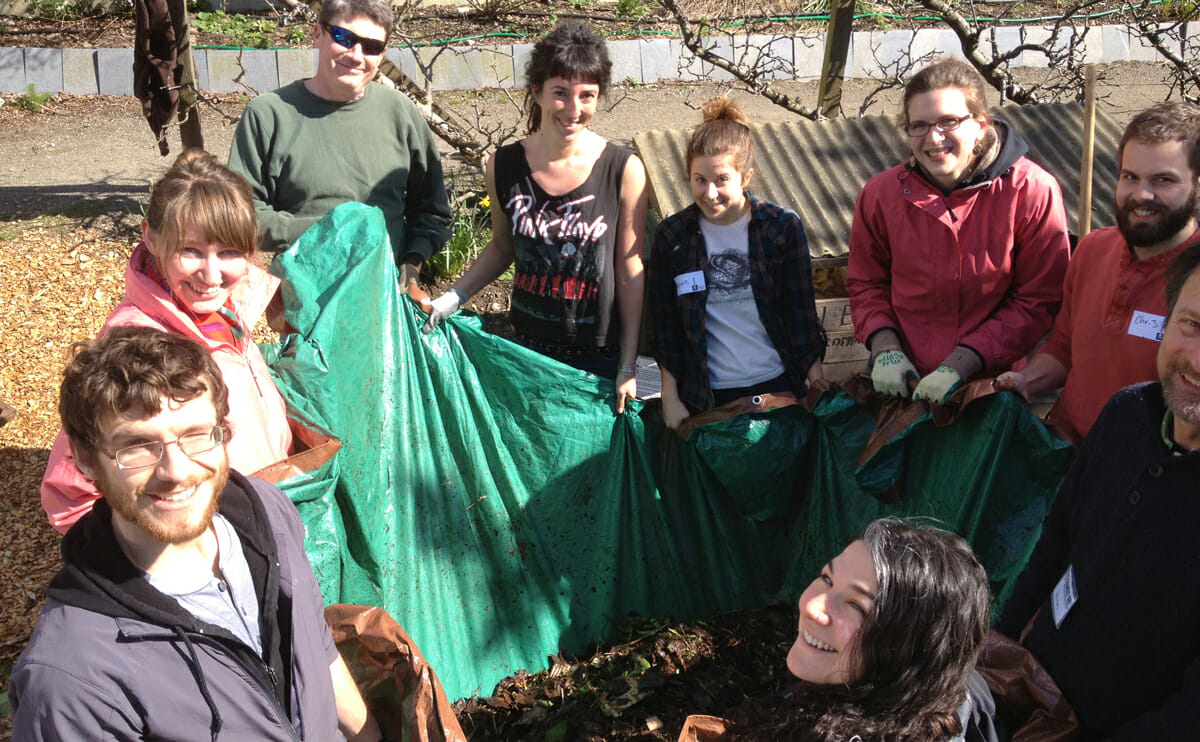Seattle Tilth, an organization that advocates and teaches organic food growing, started the first Master Composter Program in the U.S. in 1986. The program has changed over the years, as has composting in Seattle (the city began curbside collection of food and yard waste in 2006), but there are still plenty of people interested in […]

Seattle Tilth, an organization that advocates and teaches organic food growing, started the first Master Composter Program in the U.S. in 1986. The program has changed over the years, as has composting in Seattle (the city began curbside collection of food and yard waste in 2006), but there are still plenty of people interested in learning how to create their own compost at home. Entry into the program is competitive — only about half of the 80 people who apply each year are accepted.
“We start with the soil food web and how decomposition works,” says Seattle Tilth’s Sheri Hinshaw. “In reality, decomposition is just a natural process that happens with or without our help. But it’s understanding how that functions that allows us to build a recipe that takes less time and has the quality to it that we are looking for in our gardens.”
After decomposition studies, the class moves onto the specifics of composting and how to build a compost system. There’s also a more recent addition: managing storm water and protecting water quality (storm water quality is the next big issue on Seattle’s environmental agenda).
The Master Composter program looks at farming and gardening differently than other agricultural programs. “[Traditionally] we talk a lot about fertilizing plants, right?” says Hinshaw. “Well, we teach people how to feed the soil, so the soil will feed the plant and you end up with a healthier plant in that process.”
Don Comstock recently took the Master Composter program to learn more about soil and composting for his organic garden. “I see urban agriculture and home and community gardens as one way for urbanites to have some connection to nature and to appreciate both our dependence on the natural world and the beauty, creativity and abundance of the earth,” Comstock wrote in an email to Modern Farmer. “I enjoy learning more about soil and composting, having the opportunity to talk with other gardeners and helping new gardeners get started.”
After finishing the 35 hours of training in the spring, Comstock began his 35 hours of volunteering. (Although the program costs $150, after students participate in another 35 volunteer hours, they get their money back.) He’s been volunteering at festivals – volunteers help attendees figure out which waste goes where – and speaking on composting and environmental issues at other local organization.
Beyond the reaches of the Seattle city limits, Seattle Tilth is also spreading the compost credo beyond the city. Gardeners can take the New York City Master Composter program, modeled after Seattle’s, and there are similar programs available throughout the country from California to Rhode Island.
So if you want to figure out how to best handle your food waste, time to head back to school.